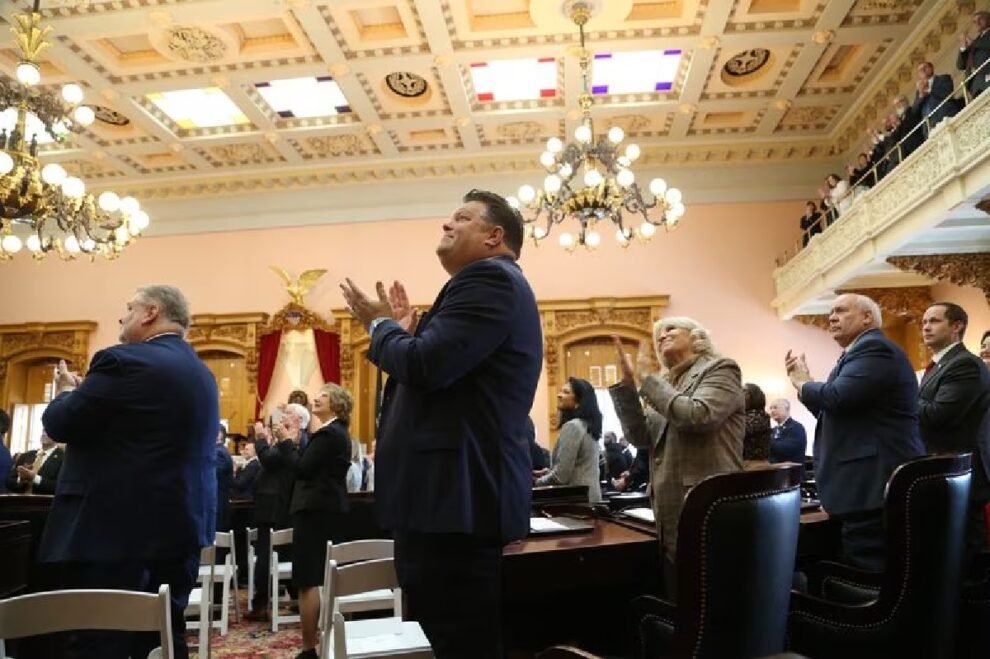With an Ohio legislature increasingly dominated by downstate, rural and small-town interests, it’s become almost reflexive to say that’s why Greater Cleveland doesn’t enjoy the clout it once had in Columbus. But just a short stroll through history suggests it could also be the parochialism of lawmakers Northeast Ohio has recently sent to the Statehouse.
The influence wielded by the late state Rep. Patrick Sweeney, a former Cleveland water meter reader who spent more than 30 years at the Statehouse delivering for Cleveland, is legendary and likely can never be matched. Shortly before Sweeney died three years ago at 81, columnist Brent Larkin wrote he’d “sent more state money Cleveland’s way than any legislator in history.”
Of course, those were the days when Democrats could control powerful committees, like Finance, which Sweeney chaired (and which Chagrin Falls’ Matt Dolan of the GOP chairs today in the Ohio Senate, Dolan being as close to a go-to local legislator as Greater Cleveland now enjoys.)
But influence isn’t necessarily a function of party or position.
Also once in the leading ranks as Cleveland go-to lawmakers were future Mayor Jane Campbell, a Democrat who served in the Ohio House for a decade; the late Grace L. Drake of Solon, a Republican who represented parts of Cuyahoga, Medina and Wayne counties in the Ohio Senate for 16 years; the late Judy Sheerer, of Shaker Heights, whose Statehouse service spanned about 15 years; and fellow Democrat Eric Fingerhut, who both preceded and succeeded Sheerer in the Ohio Senate after a term in Congress.
A particularly telling battle was in 1997, when Democratic Cleveland Mayor Michael R. White persuaded the legislature to give him power over the Cleveland schools, legislation written and expertly championed by then-state Rep. Mike Wise, a Mayfield Republican.
One lesson: Bipartisanship can be an effective lever to get things done. Another, though, is that effective partnerships require vision, receptivity, and the hard work needed to build support.
So what does our editorial board think? Can Cleveland recapture its influence in Columbus? If so, how?
Ted Diadiun, columnist:
Partisanship is more acrimonious than when Patrick Sweeney and others held sway, and much of Ohio’s political power is concentrated in GOP strongholds downstate, where it’s no secret that many Cuyahoga County opinion leaders consider them a bunch of right-wing hayseeds. Not a great atmosphere for convincing legislators to send our tax money back up here as in days of yore.
Thomas Suddes, editorial writer:
The short answer to the region’s dilemma is term limits. They forestall the possibility that a given legislator can gain enough expertise — and learn the meandering ways of the state bureaucracy — to become truly effective in Columbus.
Eric Foster, columnist:
Perhaps the lack of a “go to” state legislator is influenced by where the Republican Party is today. It’s radically different from years past. The party used to have a platform. Today, it only has a personality. It’s difficult to find common ground with someone who isn’t standing on anything. Bipartisanship is therefore dictated by celestial alignment, not negotiation.
Lisa Garvin, editorial board member:
Extreme gerrymandering is diluting the power of urban districts, and Ohio’s Republican supermajority doesn’t care about blue-leaning cities. The Democratic stranglehold on our local politics discourages candidates of either party from running — and those who do are often woefully inexperienced and clueless about the job. We need a pipeline for quality candidates to advance from local to state public office.
Mary Cay Doherty, editorial board member:
The men and women who represent Greater Clevelanders in Columbus — Democrats and Republicans alike — undoubtedly work very hard for their constituents. Today, however, Cuyahoga County’s Democrats are out of step with Ohio’s more conservative base. Statesmanship and a spirit of bipartisanship are noble goals for all politicians. But for Democrats in Columbus, these cultivated skills are necessities, not niceties.
Elizabeth Sullivan, opinion director:
That today’s politics are so toxic as to make cross-aisle cooperation harder to achieve cannot be disputed. But it’s not impossible. Few gave Mike White a chance on mayoral control of the Cleveland schools — or Frank Jackson a chance to achieve his Cleveland Plan for transforming the schools. Yet they succeeded, thanks to sustained outreach. It can be done, if the motivation and the right partners are there.
Source : Cleveland












